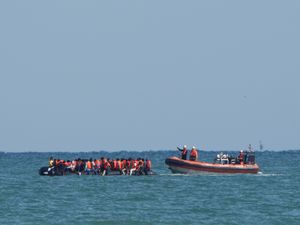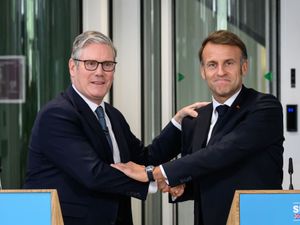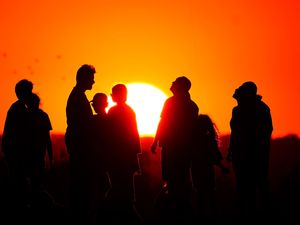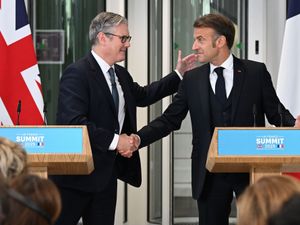Ofsted chief hopes face masks in class stay for ‘as little time as possible’
Her comments came as families in England prepare to send their children back to school next week.
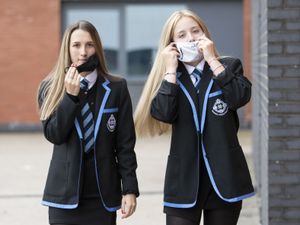
Ofsted’s chief inspector hopes safety measures being introduced in secondary schools – including face coverings in classrooms and rapid coronavirus tests – are in place for “as little time as possible”.
Amanda Spielman, the watchdog’s chief inspector, said she understood the “need for infection controls”, but she hoped children would be able to return to a more normal environment after a short period.
Her comments came after ministers have faced calls to provide more decisive guidance on face coverings in schools across England for when pupils return to class from Monday to prevent potential disputes.
The Department for Education (DfE) is advising secondary school students and staff to wear face coverings at school wherever social distancing cannot be maintained, including in the classroom.
But the measure – which is set to be reviewed at Easter – is not mandatory, and in primary schools, pupils are not being required to wear face coverings when they return to face-to-face lessons next week.
Education unions have warned that greater testing of pupils and the wider use of face coverings “may not be enough” to cope with the increased risk of transmission as schools reopen.
Nine unions, representing school leaders, teachers and support staff, have called for schools to be given flexibility to take local measures to strengthen the safety of students and staff.
The joint statement, published by the Trades Union Congress, says: “The safety of students and staff is paramount and Government must put in place a robust framework of protection and support to this end.
“The raft of measures utilised following previous lockdowns has now been added to with a ramping up of testing and a greater use of face masks.
“However, many scientists (including Sage) recommended a phased reopening and have warned that these measures on their own may not be enough to deal with the increased risk of airborne transmission as schools reopen fully.
“It is therefore imperative that Government gives schools the flexibility to take measures to strengthen the safety of students and staff in their local context.”
But addressing the new measures – including regular rapid Covid-19 tests and face coverings in secondary schools – Ms Spielman said she hoped they would be in place for “as short a time as possible”.
She told BBC Radio 4’s Today programme: “I understand the need for infection controls, but at the same time I hope that it needs to be there for as little time as possible.”
Her comments came after a letter, organised by parent campaign group UsForThem, was sent to the Education Secretary urging him not to recommend that pupils have to wear masks in classroom when schools return.
Rob Halfon, the Tory chairman of the Commons Education Select Committee, has warned that ministers risk creating “mask anarchy” unless regulations on face coverings in schools were made clearer.
On Tuesday, Geoff Barton, general secretary of the Association of School and College Leaders, told MPs that it would be “much easier” if Government guidance on face coverings was “black and white” as he said head teachers could “do without” disputes about face masks as pupils return to school.
But when asked why rules around face coverings in schools were not stricter, Education Secretary Gavin Williamson told the i: “We don’t think it is necessary to make it the law, and we think that schools will use good judgment.”
Ahead of pupils’ return to face-to-face lessons next week, the Education Secretary suggested a five-term school year may form part of the Government’s plans to help children who have missed out on learning.
He told the i that “it was right” to have a discussion about the length of holidays and school terms.
Asked whether school days should be longer or holidays shorter, Ms Spielman told BBC Radio 4’s Today programme: “I think we need to make sure children get their full allocation of schooling.”
She added that many families have been stretched “almost to breaking point” with remote education and she said many children are lonely and “miserable”.


